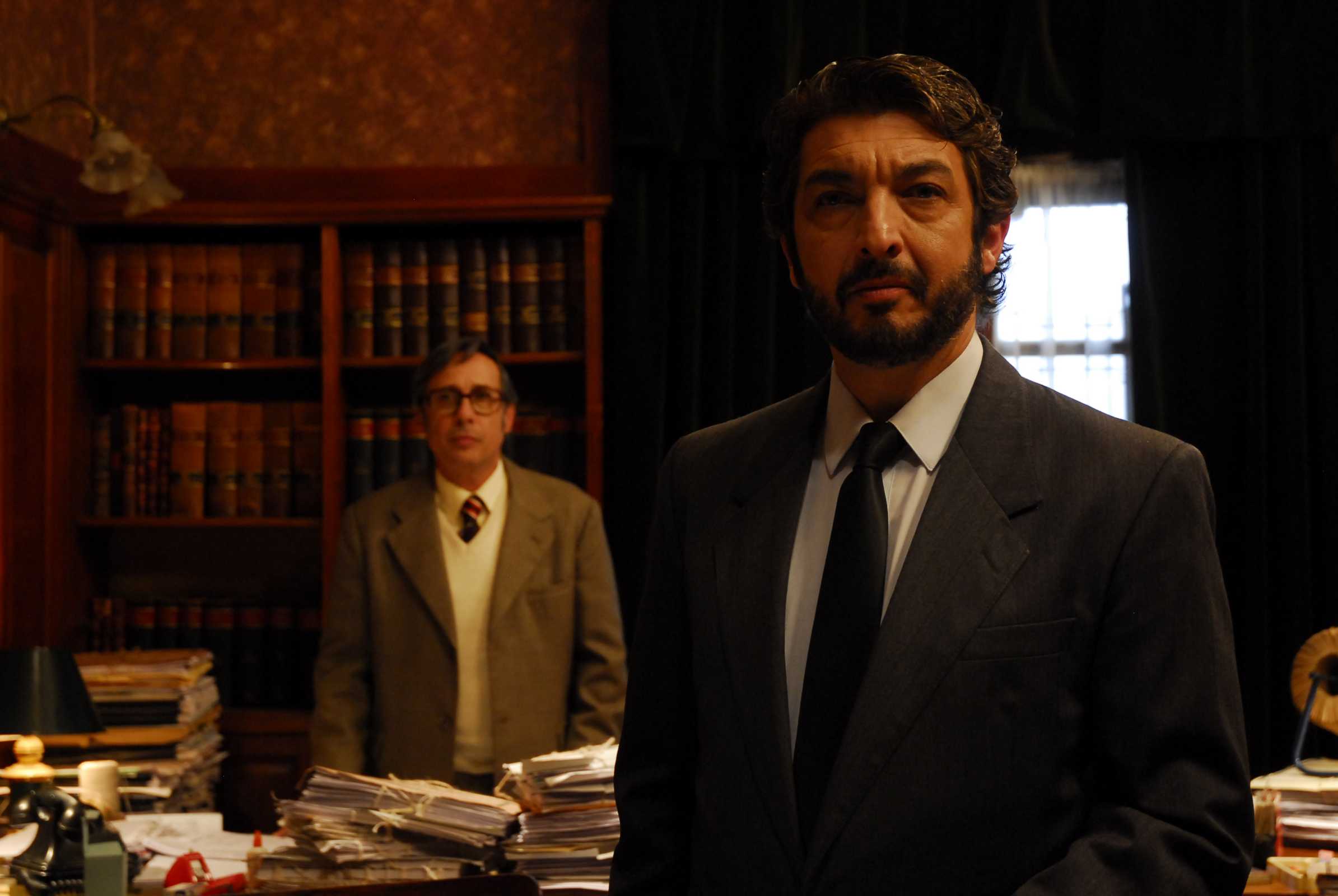The secret in their eyes (Juan José Campanella, 2010)
The secret in their eyes is a
striking movie, giving a lot of thoughts to the viewer. It tells the story of
Benjamin Esposito who wants to solve an old criminal case which was opened 25
years ago: a woman was raped and murdered. This case has haunted Esposito, who decides to reopen it to find the culprit. Meanwhile, he has always been in
love with Irene, an investigating judge who works with him, but can’t confess
his feelings.
The actors are really good and act well. Ricardo Darin and Soledad
Villamil are convincing in their roles. Their presence is powerful in the
screen. Esposito’s friend, Sandoval , is also a great character, bringing a
comic touch in the movie. The characters
are quite complicated and believable.
The movie is really
well-structured, with some flash-backs of the murder scene and of Esposito’s love
story. Moreover, the atmosphere is full of melancholy and memories of the past.
Morales, the husband, is always thinking about what happened to his wife, and
how it happened… He doesn’t live in the present, making hypothesis on what
could have happen if he had done something else. The movie also tackles several
deep questions about the value of a crime and how it can be punished. According to Morales, the best way is to make
the criminal live an “empty life”. This is what he suffers in the end, being
imprisoned in Morales’ house who has never said a word since he locked Gomez up. The effects of such
a story on people are also mentioned in the movie. In fact, not only the
criminal is imprisoned, but also Morales, who tries to live with the weight of
the past. He realizes that he is slowly forgetting the memories of his wife.
The final scene shows that the“prison” feeling is endured by the culprit, but also by Morales. The composition of the shot is really expressive: both characters are shown behind bars. We can also
see the themes of failure and success. First, Esposito fails to solve the criminal case and
can’t find the suspect. And even if in the end, he knows the murderer, Gomez,
is imprisoned in Morales’ house, he still has the case on his mind. But also,
he has never confessed his love to Irene until the very end of the movie.
Moreover, he has trouble writing his novel and don’t know how to begin it. But he finally managed to solve everything and the movie ends with a note of hope.
 The subject of the look is
also often present in the movie. Indeed, the way the murderer is looking at
Morales’ wife on the old pictures, and the analogy with Esposito and Irene
pictures. This look finally allows the case to be solved. But also, the final
scene relies also on the look of the three characters through the prison bars.
The subject of the look is
also often present in the movie. Indeed, the way the murderer is looking at
Morales’ wife on the old pictures, and the analogy with Esposito and Irene
pictures. This look finally allows the case to be solved. But also, the final
scene relies also on the look of the three characters through the prison bars.
Concerning the movie direction, the way it is filmed is really academic
and not original. The other criticism we can make is the very slow rhythm of
the movie. The shots really stretch and last a long time.
However, the dialogues are really good and the scenario is interesting.
Some shots are technically really good, such as the soccer field scene… and the
camera-work is pretty much impressive, with a lot of sequence-shot.
The movie also offers an historic context of the ascent of the
dictatorship in Argentina and shows the corruption of the juridical system at
that time.
In the end, we can say that The Secret in
their Eyes is a beautiful movie, emotionally involving the viewer. This movie is
a good way to discover Latin-American cinema, with an interesting scenario
which blends love, violence, humor and a criminal case.



